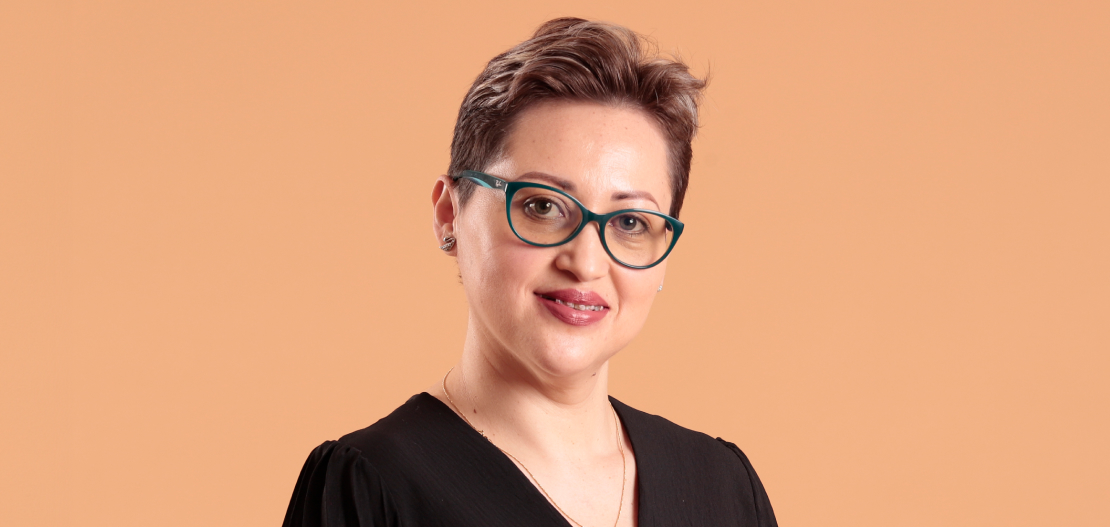In this fascinating interview, we talk with Johanna Pulido, a prominent leader in the world of technology and business. Johanna is CEO and founder of FactorINN, a company that has revolutionized the field of knowledge economy and creative economy. With over 20 years of experience, an impressive academic background that includes a Master's degree in Big Data and Applied Mathematics, an MBA with an emphasis in Marketing and a PhD in Complex Thinking, Johanna shares with us her inspiring journey, her vision on business transformation and how advanced technologies are reshaping the future of organizations. Join us on this journey through the experiences and insights of one of the brightest and most passionate minds in the industry.
- Tell us a little about your career path and how you came to be the CEO and founder of FactorINN.
My career path has been a fascinating journey through various disciplines and roles that have led me to where I am today. I have specialized in Big Data, Applied Mathematics and Complex Thinking, areas that I am deeply passionate about and that I consider fundamental to understand and address modern challenges. This combination of expertise allowed me to found FactorINN, where we apply these disciplines to transform businesses and create innovative solutions. My motivation has always been a passion for data and its ability to reveal patterns and facilitate informed decision making.
- What motivated you to specialize in Big Data, Applied Mathematics and Complex Thinking?
The specialization in these areas arose from my fascination with data and its ability to generate knowledge. Big Data offers opportunities to better understand complex phenomena through the analysis of large volumes of data. Applied Mathematics provides the necessary tools to analyze these phenomena, allowing me to unravel the secrets hidden in the data. Complex Thinking is crucial to address multidisciplinary issues and understand the complex interactions of the real world. These disciplines allow me to see the whole and address challenges more effectively.
- Business transformation is a very strong current right now, how do you define business transformation and what do you think is its importance in the current context?
Business transformation is a continuous process by which organizations re-evaluate and redesign their structures, strategies, processes and culture to adapt to a constantly changing environment. Its importance lies in the need to adapt quickly to the technological revolution and to changes in social behavior and business models. It fosters innovation, improves efficiency and productivity, and enables the creation of long-term value for all stakeholders, from shareholders to employees and society in general. It is crucial to remain competitive in a dynamic and challenging market.
- As an expert in the knowledge economy and the creative economy, what role do they play in the growth, sustainability and productivity of companies?
The knowledge economy and the creative economy are fundamental pillars in business growth, sustainability and productivity. The knowledge economy focuses on the generation and acquisition of knowledge from data, which allows companies to innovate and adapt quickly. The creative economy, on the other hand, is based on generating value through originality and innovation. Both economies foster differentiation and competitiveness, increasing product and service diversification, and improving processes and customer experiences. Together, they drive long-term sustainability and strengthen networks of knowledge and cross-sector collaboration.
- Another of your areas of expertise are your knowledge in Big Data, Artificial Intelligence and Machine Learning. How have you applied them in your projects and business strategies?
I have applied this knowledge in several areas to drive innovation and improve decision making. In my projects, I use predictive analytics and Machine Learning techniques to anticipate market demand, identify growth opportunities and mitigate risks. I also employ machine learning algorithms to personalize experiences and optimize resources, improving operational efficiency and reducing costs. These technologies enable more accurate and informed decision making, which is essential for business success and sustainability.
- What benefits have you found from using these technologies in business decision making?
The benefits are numerous. The accuracy in analyzing large volumes of data provides a solid basis for decision making. Identifying patterns and trends makes it easier to adapt to market changes and consumer behavior. Personalizing customer interactions and optimizing resources are key aspects that improve efficiency and reduce costs. In addition, risk mitigation is crucial, since these technologies allow identifying anomalies in real time and taking preventive measures to protect the company.
- As a professional who shares her knowledge through international conferences, what has your experience been like as a mentor and international speaker at events such as EXMA and Heroes of Change?
My experience has been incredibly rewarding and enriching. Sharing my knowledge and experiences with professionals and entrepreneurs has allowed me to contribute to the growth and development of others, which is very satisfying. In addition, the feedback and mutual learning with other experts and professionals at these events has been invaluable. International events are excellent opportunities to network, build professional networks and foster collaboration. Inspiring others with my story and achievements is one of the most rewarding parts of my job as a mentor and speaker.
- What advice would you give to people working in the business and technology world?
I would recommend keeping up to date with the latest trends and tools, cultivating soft skills such as effective communication and leadership, and adapting quickly to change. Encouraging collaboration and teamwork is essential, as is not being afraid of failure, as it is an important part of learning. Taking care of personal well-being is crucial to maintain a balance and be more productive. Maintaining an entrepreneurial, proactive and innovative mindset is fundamental for success in the business and technology world.
- In your vision, what trends do you think will mark the future of the business and technology market?
Future trends will be marked by connectivity and digital coexistence, humanity in technology, omnipresence in customer service and personalization. In addition, the integration of architectures and infrastructures within organizations and being disruptive in the way of doing business will be crucial. The democratization of knowledge and ethics in data management will be essential for sustainable and responsible development. These elements will be key to face the challenges and take advantage of the opportunities in the business and technology market.
Throughout this interview, Johanna Pulido has offered us a deep and enriching vision on the importance of business transformation in the current context, highlighting the crucial role of the knowledge economy and the creative economy. Her experiences and expertise in Big Data, Artificial Intelligence and Machine Learning have not only driven innovation in her projects, but also demonstrated how these technologies can improve decision making and efficiency in organizations. Johanna, with her mentoring spirit and international speaker, continues to inspire professionals and entrepreneurs through her disruptive and humanistic approach. Undoubtedly, her perspective and leadership will continue to be a transformative force in the business and technology world.







